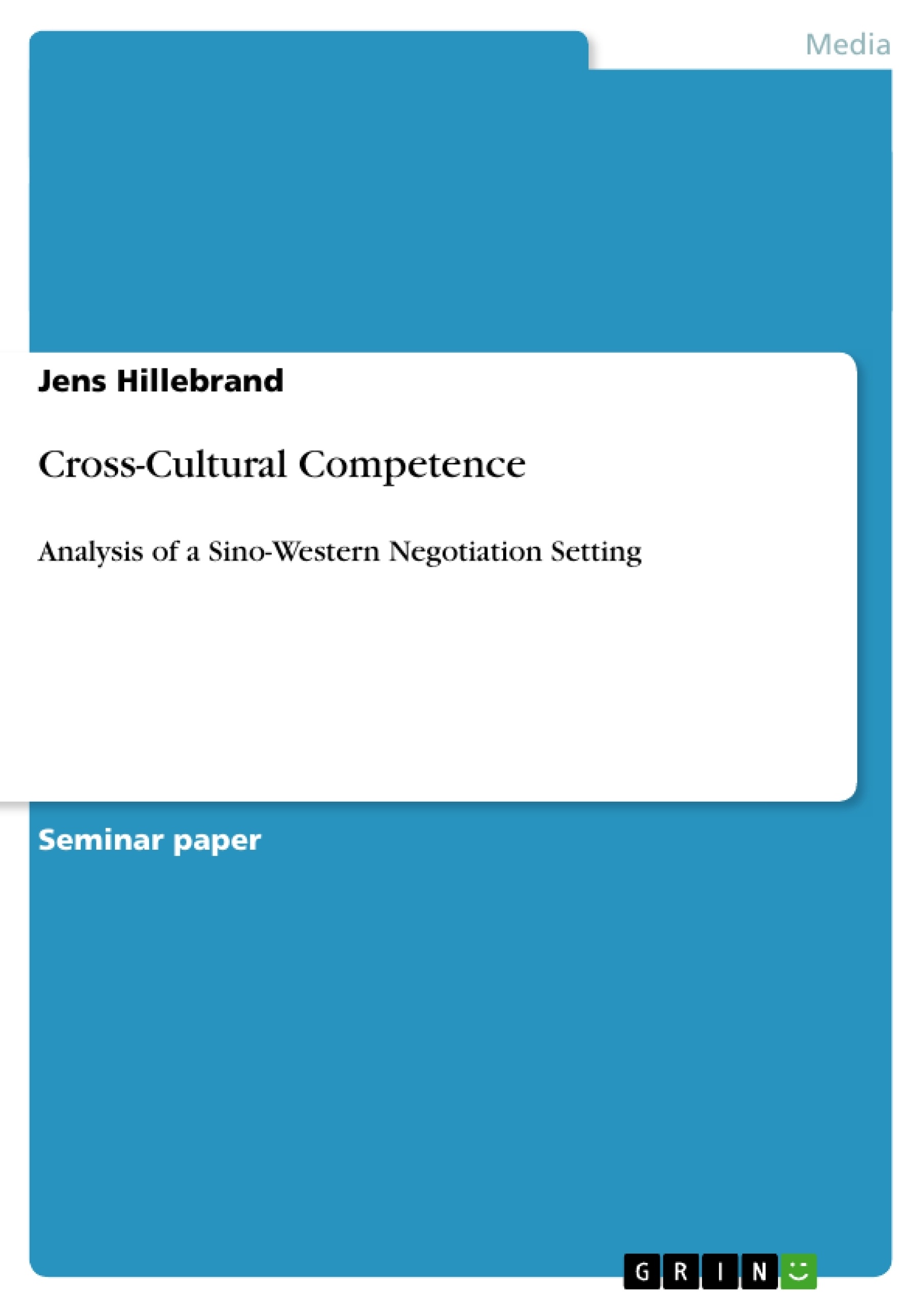Excerpt
Table of Contents
1. Executive Summary
2. Introduction
3. Analysis: Cultural Theory Applied
3.1. Hofstede: Culture’s Consequences
3.2. Hall: High-Context vs. Low-Context Cultures
3.3. Logic Paradigms within Cultures
4. Conclusion
5. Recommendation
6. References
1. Executive Summary
This study analyses the challenges of cross-cultural negotiation settings by using a variety of cultural frameworks and theories. Basis for the analysis forms an incident between a Western company and the Chinese county which it operates in. The analysis reveals that major issues are grounded in different attitudes towards hierarchy, varying importance of group membership and loyalty as well as the cultures’ different perception of time. Further difficulties may result from distinct degrees of explicitness and differences in uncertainty avoidance. Concluding that awareness of cultural differences is crucial for successful negotiation outcomes the study will finally offer practical suggestions how to deal with the cultural challenges faced by each of the negotiating parties.
2. Introduction
Cross-cultural management poses unique challenges which are becoming ever more prevalent in the rapidly expanding field of international management. The purpose of this paper is to analyse these challenges via use of culture-related concepts and theories. It will do so in the context of a cross-cultural negotiation setting faced by a Western company operating in Southern China.
The company ColourBest Holding (Hong Kong) Ltd. started operations in the textile dying industry in 1987. Facing intense competition, it entered into a joint venture with the Agricultural Machinery Corporation of Zhengcheng County, China. Being the first joint venture to be set up in Zhengcheng County the new subsidiary gave a major economic boost to the local economy whose major income so far had stemmed from the sale of lychees. However, the company’s activities resulted in bad water pollution arguably leading to a decline in quality and quantity of lychee production. Eventually, local farmers launched a protest against ColourBest which caused the Chinese Ministry of Foreign Affairs and Trade to intervene and to rule for Zhengcheng County and ColourBest to resolve the matter within a week.
Entering into the negotiation are Chinese nationals on Zhengcheng County ’s side and a team of British and German managers on behalf of ColourBest. This study will apply a number of cultural theories to analyse the challenges and potential pitfalls that may occur in the cross-cultural communication setting between the Chinese and Western negotiators. In particular, it will use Geert Hofstede’s (1980, 1991 cited in Hofstede, 1994) cultural framework to identify specific cultural differences between the two negotiation teams. His dimensions will be complemented by Edward T. Hall’s (1989) high- and low-context cultural model. Further aspects will be put into the context of alternative logic paradigms prevalent in each of the represented cultures. Finally, the study will conclude on the key issues likely to be faced by the negotiating parties before providing recommendations on how to avoid potential problems and misunderstandings.
3. Analysis: Cultural Theory Applied
3.1. Hofstede: Culture’s Consequences
Perhaps the most widely cited cultural framework is that of Geert Hofstede (1980, 1991). In his work he defines a number of cultural dimensions which have implications for the presented negotiation setting. It is important for each side to be aware of the differences in order to be able to engage in constructive dialogue.
Power Distance
The first important element is related to the prominence of status and hierarchy in each of the involved cultures. According to Hofstede (1980), Western cultures are characterised by relatively low Power Distance, meaning they tend to see members of society as being equal. Opposed to this, power and status play a much more important role in China. The consequences of this difference can take multiple forms. Whereas it is embedded in the Western notion of equality to be entitled to directly converse to anyone, such direct communication may cause disturbance or even offended feelings on the Chinese side. Chinese representatives with high status may prefer to communicate indirectly via use of an interpreter and in some cases they may completely avoid interaction with members from the other group due to their perception of status differences (Woo & Prud’homme, 1999).
[...]
- Quote paper
- Jens Hillebrand (Author), 2007, Cross-Cultural Competence, Munich, GRIN Verlag, https://www.grin.com/document/87788
Publish now - it's free






















Comments